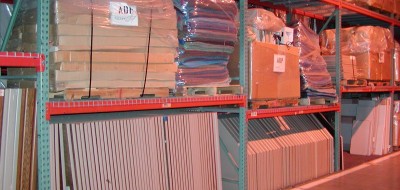 There are thousands of Egyptians that work in Libya. Unfortunately, the recent outbreak of violence has left many of them stranded with no way home. In fact, hundreds of Egyptian workers have been robbed by Libyan soldiers and are stranded near the Tunisian border.
There are thousands of Egyptians that work in Libya. Unfortunately, the recent outbreak of violence has left many of them stranded with no way home. In fact, hundreds of Egyptian workers have been robbed by Libyan soldiers and are stranded near the Tunisian border.
Last week, about 400 Egyptian workers fleeing Libya and relocating to their home country found themselves being helped on their journey by German warships. Because the current conditions within Libya are of worldwide concern, the German navy was sent in. An airport-like check-in was set up on the dock in the port of Gabes, which is a three-hour drive from the workers’ transit camp right on the border.
At the check-in station, Egyptian workers were assigned ID numbers, matching luggage tags, and were registered with their passports. Of course, all bags were subject to inspection and workers were checked by doctors before being allowed to board the warships. This was all welcomed by the workers who just wanted to move out of Libya and back to Egypt.
The lack of chaos at the port was a welcome cry from what has been occurring within Libya’s borders the last couple of weeks – the German warships were met with applause from the Egyptian workers. For the German navy, this refugee rescue mission is the first of its kind.
Because the German warships were rescuing stranded Egyptians from a potentially dangerous situation and relocating them home, nothing was left to chance. Security was strict; after all, three warships were moving the refugees home, not acting as cruise ships. Although the German navy prohibited smoking it did provide traditional Arabic food and a translator.
The 412 Egyptian refugees were among 200,000 workers from various countries who have fled Libya in the last two weeks since the fighting between rebels and Libyan forces loyal to Gadhafi began. Many of these refugees relocated to Tunisia. Although thousands have been repatriated to their home countries, many still remain in Libya, stranded at the border camps set up along the Tunisian border. These 412 were pretty lucky.
Until the conflict escalated, Libya was a magnet for foreign laborers looking for the opportunity to work and receive good rates of pay.
Most of the laborers who attempted to cross into Tunisia to escape Libya were stopped at the Libyan army checkpoints before the borders and robbed. Libyan soldiers forced workers to hand over whatever cash they had, mobile phones and phone cards, and other possessions before allowing the refugees to move on. Some of the refugees were even beaten. Initially, refugees slept out in the open across the border, but shortly thereafter tented camps were opened.
Germany’s warships – the Brandenberg, the Berlin, and the Rheinland-Pfalz – weren’t far away when they were rerouted to pick up the Egyptian refugees. They were on a training voyage in the Atlantic and Mediterranean. On the three-day journey home, refugees slept in the huge hangers located in the belly of the frigates, where they usually stow the helicopters. The German navy even moved in a large TV set playing Egyptian shows.
Jon Huser





